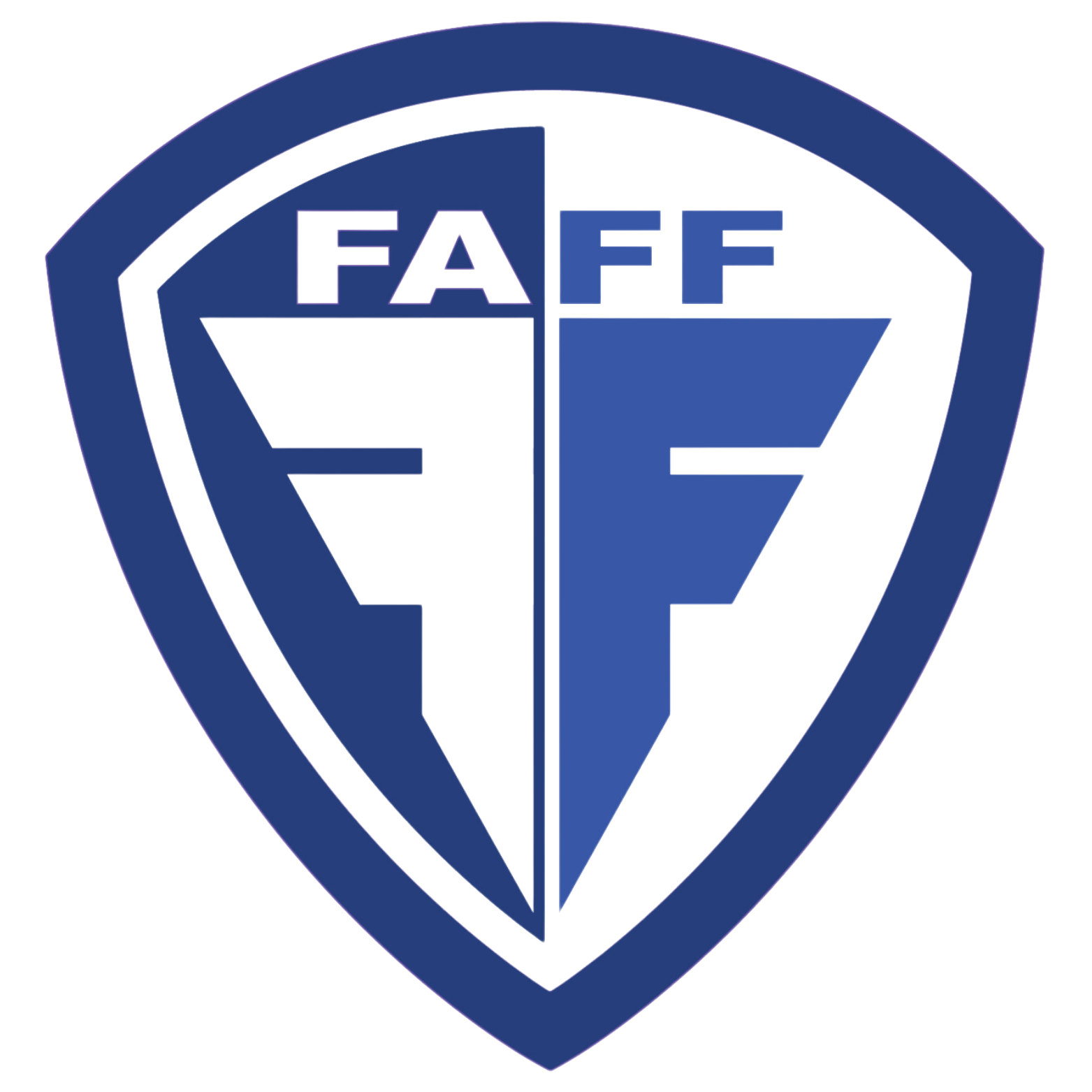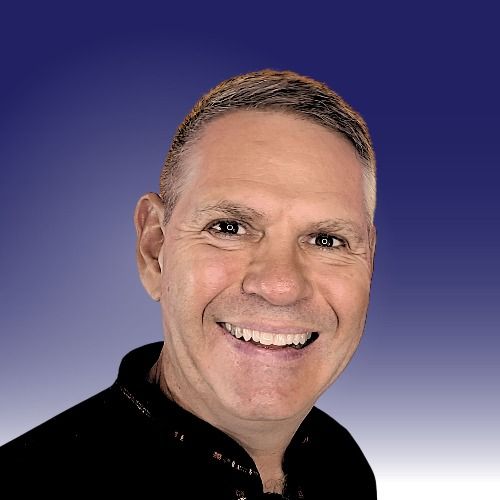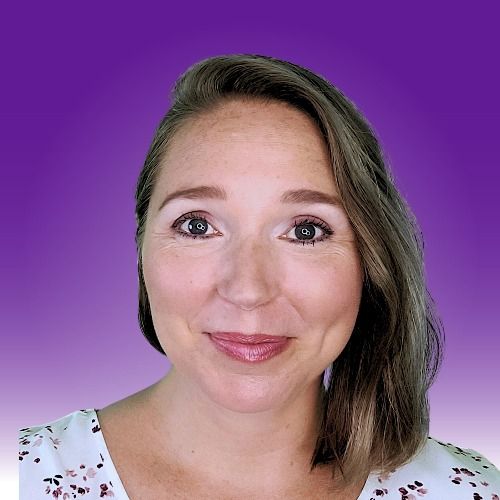Episode 32
Strategies for Screenplay Success, with David Hyde
Episode 32 - Strategies for Screenplay Success, with David Hyde
In this episode of the Faith and Family Filmmakers Podcast, hosts Geoffrey Whitt and Jaclyn Whitt continue their discussion with David Hyde, providing detailed advice for screenwriters on how to increase their chances of success at film festivals and in getting their work read and appreciated by producers. The speaker emphasizes the importance of selecting the right festivals, tailoring submissions to the festival's genre preferences, crafting a well-told story with clear formatting, and avoiding common pitfalls such as excessive dialogue or description. The importance of character development, ensuring the script is a fast and engaging read, proper proofreading, and understanding when a script requires polishing versus a complete rewrite are also discussed. Techniques such as combining characters for clarity and budget considerations, distinctive naming, and ensuring unique character voices are highlighted as crucial strategies for screenwriters. Highlights:
- Introduction and Welcome
- Navigating Film Festivals: Tips for Screenwriters
- Crafting a Winning Script: Storytelling and Formatting Insights
- Avoiding Common Screenwriting Pitfalls
- The Evolution of Audience Expectations in Film
- Consulting Insights: Polishing Your Screenplay
- Character Development and Script Clarity
- The Art of Script Consulting and Rewriting
- Character Naming and Dialogue: Making Each Voice Unique
- Concluding Thoughts on Screenwriting Success
David Hyde is an award winning screenwriter and owner of scripts4c.com screenwriting and script consulting service. David recently won the Movie Guide Kairos Award for the script Hope from the Ashes that he co wrote with Alice Bowden.
David's Story and Script Consulting Services: www.scripts4c.com
The Faith & Family Filmmakers podcast helps filmmakers who share a Christian worldview stay in touch, informed, and inspired. Releasing new episodes every week, we interview experts from varying fields of filmmaking; from screenwriters, actors, directors, and producers, to film scorers, talent agents, and distributors.
It is produced and hosted by Geoffrey Whitt and Jaclyn Whitt , and is brought to you by the Faith & Family Filmmakers Association
Support Faith & Family Filmmakers Our mission is to help filmmakers who share a Christian Worldview stay in touch, informed, and inspired. If you would like to assist with the costs of producing this podcast, you can help by leaving a tip.
Enter the Faith & Family Screenwriting Awards festival
Faith and Family Screenwriting Academy: https://www.faffassociation.com/
Script Notes and Coaching: https://www.faffassociation.com/script-services
Copyright 2024 Ivan Ann Productions
Transcript
Hey, welcome back to the members portion of our interview with David Hyde on the Faith and Family Filmmakers podcast.
Geoff:We're going to get into some specific screenwriting tips and advice that will improve your writing and advance your career.
Geoff:To start off, David, what do festival readers look for that might advance your script in a contest...
Geoff:or exclude it?
David:Well, first off I would say, choose your festivals carefully.
David:There are people out there that will just shotgun out to every festival, and you'll get some success that way, but a more focused approach is going to do a better return for you.
David:Don't enter a drama into a comedy contest.
David:Don't enter a comedy into a drama contest.
David:Seems obvious, but some of the festivals you can look at the past winners and see what kind of genre they favor.
David:And others are very straightforward in their description of their festival, what they're looking for.
David:Mine is faith and family.
David:So, you know, we're looking for clean, family friendly material.
David:Some of them are faith based and even in that sub genre, some of them are specific faiths.
David:So be aware of that.
David:But what they're looking for is you know, just a well told story...
David:I thin k is primary, and the emphasis being on well told.
David:Some of them, they don't care about formatting as much.
David:Formatting is important, but only in so much as it makes the script readable.
David:I don't think you need to worry as much over having the formatting perfect, as some people will tell you.
David:Because, honestly, the first round of any of these contests, they're just readers.
David:They're just other screenwriters, and they're just reading for story.
David:The better you can tell your story, and just making it clear, is going to put you above the pack in most contests right there.
Jaclyn:Is there anything that would trigger you to, start to, think less about the script?
David:Usually it's things that get overdone.
David:Too much dialogue, or too much description, or just a good balance between the two.
David:I see a lot of scripts from new screenwriters where every dialogue is 5, 10, or more, lines, which, when you're on screen and you're sitting in an audience, you know, that's a lot of time where you're just listening to someone talk.
David:It doesn't seem like it on the page, but it really is.
David:And sometimes it's just a matter of Break it up, spread it out.
David:But yeah, I think that's the number one thing that will slow script down.
David:And I say slow, meaning that it takes longer to read it.
David:Is just having too large a block of dialogue as a normal course.
David:I had a very good friend of mine tell me, it's like if you're going to have a long block of dialogue, for lack of a better way to describe it, you have to earn it.
David:You know, you can probably get one per screenplay.
David:if you're having a page and a half monologue, you've really got to earn it.
David:That's got to come late in the screenplay where people are okay sitting there listening to that person talk because that's a minute and a half of just somebody talking.
David:And that's that's hard to do on screen.
David:So just I would say keep it tight, keep it short, and keep it moving.
David:We're in an instagram world, And people want things to be quick.
David:I go back and I watch movies that I loved in the eighties and I tell you, it's like, I can't believe how slow this is.
Jaclyn:I know!
Jaclyn:I was showing my kids the NeverEnding Story.
Jaclyn:I loved NeverEnding Story when I was kid, and we watched it and I thought, why is he still walking through the mud right now?
Jaclyn:Like, that is such a long scene.
Jaclyn:I was shocked at how slow moving that movie was.
Jaclyn:I didn't notice it when I was younger, because that was also part of the time.
Jaclyn:But now like, that would never fly.
David:Right.
David:You just have to know that things move faster.
David:Everything in our lives move at a faster pace, and so do movies.
David:You've got to keep the pace moving in your script.
Jaclyn:Let's go to the consulting side of things.
Jaclyn:Are there things that you see in scripts that are handed to you where you think to yourself, Do they really want me to spend my time on this detail?
Jaclyn:Like, I'll just put one out there.
Jaclyn:Spelling, right?
Jaclyn:Like, I mean, most of the time I think well, I'll just tell them You need to check your spelling because for me to point out like two, three mistakes on a page, I feel like you're wasting your money paying me to do this for you, right?
Jaclyn:Like you can check your own spelling.
Jaclyn:So are there other things like that, that as you're going, you're thinking, if they did this on their own, I'd be of better use for them to get into other stuff.
David:Yeah.
David:Yeah.
David:I would say definitely proofreading before you send it out to anybody, even a script consultant.
David:When somebody, a producer, a reader, a professional reader or a consultant is reading your script, it's all a matter of how quickly they can read the script.
David:How well does it flow?
David:And anything that takes them out of the story, you know, if it's bad grammar, or it's misspellings, or you've cut and pasted a scene in where it doesn't go.
David:Just anything that stops the read is going to be a negative on the script.
Jaclyn:Yeah, and by the way, when I point out bad spelling, I'm a horrible speller.
Jaclyn:I'm a writer, not a speller.
Jaclyn:But it's because I know that about myself that I always have to go back and check it before I send it out.
Jaclyn:But yeah, I like what you said about making sure that it's a fast read and that there's not anything to pull you out of the story.
Jaclyn:Because if the reader can read it and forget they're reading and just be drawn into the story and not having to stop and try to figure out what do they mean by this...
Jaclyn:like clarity, right?
Jaclyn:That's so important.
Jaclyn:Does that help you to actually have it, picked up by a producer or like helping you in the process of getting there or anything like that?
David:Oh, absolutely.
David:If your screenplay is well polished and just a very fast read, they're just going to be much more willing to read it, and If they're willing to read it, you've just exponentially improved your possibility of them wanting to option it or buy it from you.
David:If it's not a quick read they're going to know in the first they always say the first 10 pages.
David:You know the first 10 pages, that It's like, okay, this one's going to be a slog, you know, on the opposite extreme.
David:And producers time...
David:that's their income.
David:So, if they feel like it's going to be really difficult to read through, they're just not going to read it.
Jaclyn:Yeah, and, and I know that some stories, like, they really do pick up, and they really do take off, and they are amazing stories, but it takes 15 or 20 pages to feel like you're actually on a roll.
Jaclyn:So, what would you suggest for people that their first 10 Let's just say 10 to 20, which is almost in the entire act one, that is just kind of like stuff is happening, but it's not gripping yet.
Jaclyn:What would you recommend for them to do to be able to get it right from the get go where a reader is on board, where they want to keep reading every page?
David:Well, in that example, I think the first thing that comes to mind is just to have amazing characters.
David:Really have tight dialogue that's really interesting to read that you don't really need to know where the story's going.
David:You just need to care, that you want to know where it's going.
David:You can just fall in love with a character and say, hey, what's going to happen?
David:Just as much as you can follow an action scene, and get engaged with that.
David:A lot of the better screenplays is all about the characters.
David:You know, you could put them pretty much anywhere, and if you had that character, people would follow their story.
Jaclyn:Yeah, instead of just having like, okay, set up.
Jaclyn:I need to make sure I hit this plot point, or hit this detail, or I need to include that.
Jaclyn:Like that's all set up and yes, it all needs to be there, but I like what you said.
Jaclyn:It is so important to have the audience fall in love with the characters, to bond with the characters right away.
Jaclyn:And then, they're going to want to see the journey regardless of whether they know where it's going or not.
David:Yeah, and I will say that one of the things that I see in a lot of scripts that I read, is make sure you know who your main character is.
David:You have your supporting characters and you have your B story, but you don't want them to overpower the main character's story, and you'll l get off on a tangent and you'll forget where your main character is.
David:And all of a sudden the story is about somebody else that also just gets distracting.
David:Because now you've got to pull your whole audience back to caring about your main character.
David:But wait a minute, we're in love with this character now.
Jaclyn:Yeah, actually, I have been guilty of that.
Jaclyn:Like, years ago, I was working with a mentor when I was, learning how to write.
Jaclyn:And I was totally guilty of that, where...
Jaclyn:I gave him my script, and I thought, oh, this is the best thing I've ever written.
Jaclyn:I went back to sit with him so he could explain it to me, you know, everything I did so wonderfully, and then the couple things that maybe I need to work on.
Jaclyn:Mm hmm.
Jaclyn:And so I sat down and he goes, Ahem, so, Who is your main character?
Jaclyn:And I was like, um, Uh, well, I think it's this guy.
Jaclyn:And he's like, oh, huh.
Jaclyn:What's your genre?
Jaclyn:Like, there was so much that was not clear about the story because I was going in so many directions and he's like, "you could probably make three movies out of this", you know,?
Jaclyn:Cause there's just so many storylines.
Jaclyn:Um, yeah, clarity, one, but I really...
Jaclyn:it's so important.
Jaclyn:Know who your main character is.
Jaclyn:Know what genre you're in.
Jaclyn:Oh man...
David:Yeah.
David:Now when you what you did, when you do that on purpose, you know, that's great.
David:That's very creative.
David:But when you don't do it on purpose, when it just kind of happens organically and you're all of a sudden off in the weeds, then yeah, that's usually not good.
Jaclyn:Yeah, yeah, well, cause every rule can be broken, but you have to know why you're breaking it, and you need to know that you are breaking it.
Jaclyn:Cause there needs to be a purpose behind it.
Jaclyn:You can't just break it because, "I want to do this now".
David:You have to know what the rules are before you can break them.
David:Yes.
Geoff:So this is obviously the type of thing that you help writers with, with your consulting.
Geoff:I see that you do rewrites, polishes.
Geoff:So some of those projects are a little bigger than, script notes, for example.
Geoff:You do script polishing, and you do script rewrites, as I look at your website.
Geoff:Now obviously one is bigger than the other.
Geoff:Both are a fairly big project.
Geoff:But how do you determine, or how does a client determine which is needed?
Geoff:I know you probably can determine it, but, as they look at your website, for example, as possibly some of our members may want to look and use your services, how does one know whether they need a polish or whether they need a rewrite?
David:It's mostly the scale of it.
David:Typically a polish will come to me from the writer, where a rewrite will actually come from a producer..
David:A polish is more collaborative between myself and the writer.
David:You know, what, parts do you want cleaned up.
David:. Just making it flow smoother.
David:Where a rewrite is going to be actual...
David:"Okay, we need to change this part of the story.
David:This isn't working.
David:we need something new here".
Jaclyn:Yeah, shifting and correcting some structure or combining characters.
Jaclyn:Like, really actually changing certain elements in the story, not just cleaning it up.
David:Yeah.
David:And combining characters is huge.
David:That's, that's another thing for newer screenwriters, and well, and even experienced screenwriters.
David:Keep budget in mind when you're writing.
David:Do you really need that extra character?
David:Because extra characters cost money, and producers are going also not only look at your story, but they're going to look at how much it's going to cost to produce this film, when they're considering it.
David:How many locations do you have?
David:How many characters do you have?
David:Do you really need them all?
Geoff:So, for somebody slightly on the outside, perhaps, with regards to writing, can you explain what combining characters means?
Geoff:Because at first listen, it's kind of an odd thought.
Geoff:What is the exact purpose, and what does it mean?
David:Well to combine two characters, you're basically just eliminating a character.
David:Each one serves a specific purpose in the story, but you can do the same job with one actor instead of two and that's purely just a budget consideration in most cases sometimes you get so many characters in the screenplay it gets confusing.
David:The reader has to be able to keep track of everybody.
David:So if you have a cast of five compared to a cast of 10, that doesn't sound like a big change, but if there's 10 different characters you're trying to follow through the screenplay, that can be hard to do.
Jaclyn:Yeah, one of those things that I found too, because I've been guilty of large casts, and so I've had to learn how to narrow that.
Jaclyn:Because part of it too is, you know, as we were talking about wanting to have a fast read, we want to introduce the characters in a way that will allow the reader to quickly remember who they are.
Jaclyn:So their name is actually important even just for the fact of triggering the reader to remember who they are because there's no visual attached to it, right, on the page.
Jaclyn:If we're looking at a screen, yes, we can remember, Oh, yeah, that's the person that did that.
Jaclyn:But, when we're reading on the page, we have to remember who is this person and why do they matter, when they come up again, three, four pages later or 10 pages later, right?
Jaclyn:Like, we need to be able to quickly remember who they are and why they matter.
Jaclyn:Having so many introduced all at once, they kind of just all flow together because they're all kind of part of the same event.
Jaclyn:One of the strategies that I use is, when I'm introducing a character, I want to introduce them in a way that would make them stand out, that particular person.
Jaclyn:So I may not introduce them and other characters at the same time.
Jaclyn:Now, obviously for the first, you know, three, four pages, that might be hard to do because you're going to be following more than one person at a time.
Jaclyn:Have you noticed like when, reading, whether it be in a festival or consulting, have you had to flip back and forth to try to find where was that character introduced?
Jaclyn:Who are they?
David:Yeah, yeah, it's pretty common.
David:And that's the benefit of getting a second set of eyes on the script because you as the writer, you know who you're writing about, but is the reader going to be able to follow.
David:That's where the benefit of getting another set of eyes on the script.
David:Can somebody else follow it?
David:And I do agree.
David:Yeah.
David:Introducing your characters in a unique way, give them a quirk, give them personality.
David:Even your supporting characters.
David:Some people write out their whole backstory of all their characters.
David:That's for their own benefit.
David:It doesn't actually end up in the script, but you should have an idea of who these people are, where they come from, and what drives their personality.
David:And one thing is very simple, give them different names.
David:Don't, give your characters...
David:don't even start them with the same letter.
David:If even two of your characters have names that start with the same letter, it gets confusing by the end.
Jaclyn:Yeah, I even agree, just for the sake of the screenwriting software, I don't even like to use the same first letter.
Jaclyn:Because then when I'm writing, I can write so much faster, because if I have, uh, a Carolyn, and I have, um, a Karina, or something, you know, I'm gonna have to write so many letters just to get that name to come up so that I can move to the next line.
Jaclyn:Like, it's so much better, to have, like, One that starts with a C and one that starts with a K or an L or, you know, completely different sounding name.
Jaclyn:But yeah, it does make them that much more distinct.
Jaclyn:I even had, feedback on one of my scripts that David and Michael were hard to differentiate.
Jaclyn:I guess because, even though they're completely different names, the characters within my script, they couldn't remember which was which.
Jaclyn:Because those names are, kind of from the same type of name.
Jaclyn:And so I needed to come up with a completely out there kind of name.
Jaclyn:So I was like, okay, I'll, I'll change one of them to Leo.
Jaclyn:It's not as common.
Jaclyn:But anyways, yeah, like even just that, like, finding ways to make your character's names be very distinct and distinguishable that, okay, yeah, this is the character that does that or is that or whatever.
Jaclyn:Right.
Jaclyn:Yeah.
David:And keeping in mind their voice when you're writing their dialogue.
David:I've had people say, I've never actually tested this on my scripts, that you should be able to read the script aloud to somebody without saying which part you're reading and they should be able to tell who is speaking at that moment.
Jaclyn:Yes.
Geoff:Character voice.
David:Character voice.
David:Yeah.
David:Everybody talks differently.
David:Just go out and listen to people.
David:Sit in Starbucks and listen and see how people talk.
David:And even from the same culture, from the same environment, they're going to say things differently.
Jaclyn:Yeah, very different.
Jaclyn:This was very valuable information.
Jaclyn:I think the biggest takeaway that we have is being able to have a fast and easy read.
Jaclyn:That there's nothing that draws you out of the story.
Jaclyn:And so if you as a screenwriter are getting feedback that it was a fast read, then that is quite the compliment and you are on the right track.
David:Yes, very much so.
Jaclyn:Well, thank you so much for sharing this additional information with us and giving some wonderful insights.
Jaclyn:We really appreciate it.
David:Yeah.
David:Oh, glad to do it
Geoff:It's been great to have you today.
David:Great.
David:Thank you.
David:Thank you.
David:very much.





